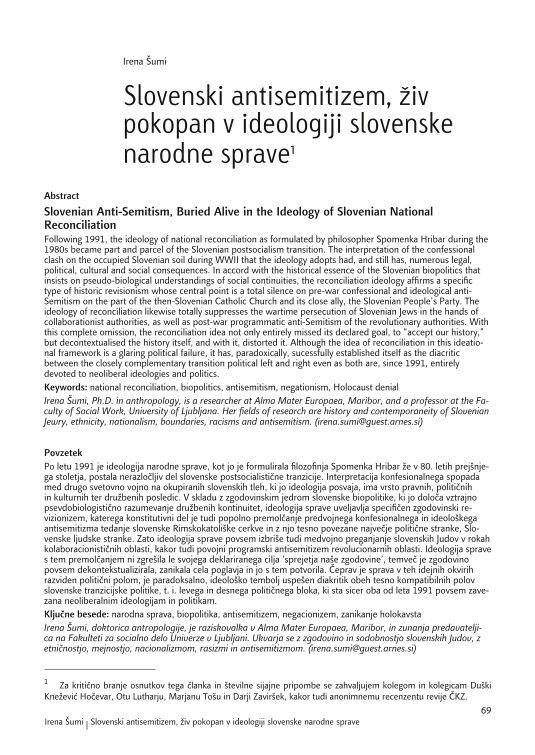Following 1991, the ideology of national reconciliation as formulated by philosopher Spomenka Hribar during the 1980s became part and parcel of the Slovenian postsocialism transition. The interpretation of the confessional clash on the occupied Slovenian soil during WWII that the ideology adopts had, and still has, numerous legal, political, cultural and social consequences. In accord with the historical essence of the Slovenian biopolitics that insists on pseudo-biological understandings of social continuities, the reconciliation ideology affirms a specific type of historic revisionism whose central point is a total silence on pre-war confessional and ideological anti-Semitism on the part of the then-Slovenian Catholic Church and its close ally, the Slovenian People’s Party. The ideology of reconciliation likewise totally suppresses the wartime persecution of Slovenian Jews in the hands of collaborationist authorities, as well as post-war programmatic anti-Semitism of the revolutionary authorities. With this complete omission, the reconciliation idea not only entirely missed its declared goal, to “accept our history,” but decontextualised the history itself, and with it, distorted it. Although the idea of reconciliation in this ideational framework is a glaring political failure, it has, paradoxically, sucessfully established itself as the diacritic between the closely complementary transition political left and right even as both are, since 1991, entirely devoted to neoliberal ideologies and politics.




